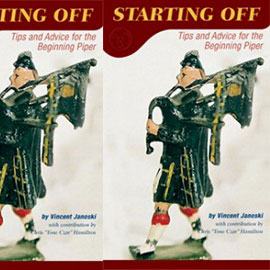No-Nonsense Bagpiping
 It is a month past, but the SFU Highland Arts Festival held the weekend after the band’s terrific performance at New York’s Lincoln Center is still fresh in my mind. I had several fits and starts for a post about the workshop but nothing I wrote captured the right tone. I could talk about the expert tuition given at the weekend of piping and drumming and dancing classes, delivered by a bunch of folks who are cluing you in to the way they “get it done,” so to speak. I could. I could do that. But the folks who were there already know those things, and more. What is really most striking and amazing is that there were dozens of enthusiastic regional pipers and drummers who did NOT take advantage of an opportunity like this.
It is a month past, but the SFU Highland Arts Festival held the weekend after the band’s terrific performance at New York’s Lincoln Center is still fresh in my mind. I had several fits and starts for a post about the workshop but nothing I wrote captured the right tone. I could talk about the expert tuition given at the weekend of piping and drumming and dancing classes, delivered by a bunch of folks who are cluing you in to the way they “get it done,” so to speak. I could. I could do that. But the folks who were there already know those things, and more. What is really most striking and amazing is that there were dozens of enthusiastic regional pipers and drummers who did NOT take advantage of an opportunity like this.
And that still sticks in my craw 30 days later.
Those of us who have been at this bagpiping game in the eastern US for any length of time have heard all the arguments and lamentations about the progress, or lack thereof, of eastern US piping. Many ideas are bantered around as to why there is not a solid average base of quality that is on par with a Scottish standard. Given the resources at our disposal here in the US, one would think that a high quality band or soloist would make an appearance sooner than about every decade. SFU has been solidly at the top of their game for the last 30 years running. Think about that for a minute. Thirty years as arguably among the best, if not the best, pipe band to ever exist on the planet. And how they do it was on full display during that weekend of piping and drumming classes. Not necessarily just “how they do it” in a hands-on, nuts and bolts kind of way, but how they think when they go about it and their attitude toward it all. And they were here on the eastern coast of the USA, 3,000 miles away from their home, to show it to the pipers and drummers on this side of the continent. That’s what everyone missed. We could do a lot worse than to have an example like that at our disposal, even for a little while.
I understand that some don’t like attending workshops of any sort. But I admit, I love going to workshops like this. Namely it is for the experience of getting a glimpse inside the heads of the folks at the best of their game. I never leave without something good. Once you reach a certain experience level personally, much of the material taught in these types of classes is stuff you already know. But there is something affirming having it cemented in your head when it is presented simply and emphatically. No nonsense. Things you might suspect are true about bagpipes and music may never be confirmed by your limited experience and always linger in doubt, but once you hear them simply stated by the best, those things have a way of burning themselves into your brain pan.
But no matter how many of these workshops I attend, I find it is a different experience when the classes are given by those who we would consider in our little piping sphere, “champions.” I am always stunned by the general attitude and overall mindset of folks like this, folks at the top of their game. Call it a “winning attitude” if you like, but they preset a distinct and direct approach to it all. No dickering around whatsoever. Dr. Allan Snyder at the Center for Mind coined it best:
“Great achievers have a vision that they will succeed and sometimes even see the steps leading to their success. So, in my opinion, what makes a champion, and I mean a champion in the broadest sense, is a champion mindset.…The world is viewed in its totality through this mindset.”
There you have it right there. It is no different when dealing with bagpipes and drums. The folks at SFU just know that what they are doing works, whether anyone likes it or not. Their effort is refined to the point where it produces the best result possible, and that result is the best thing you are going to see and hear. Why would you do anything else?
It is this mindset that separates champions in every sphere from the rest of us. They know their goals of quality and excellence are clear and reachable and it does not occur to them to do anything if it is not going to bring them toward it and keep them there. How do you do that for yourself and your own bagpiping or for your pipe band? You keep a clear vision of the ultimate goal through everything you do. There is no time like the present to cultivate a no-nonsense mentality; cultivating a mindset that moves you in the most efficient direction possible. A mindset that forces pipers to not even think about doing anything, musically or otherwise, if it is not going to get the best result possible. And this mindset needs to be evident in the widest and narrowest bits of effort. I’m venturing into the broader territory of goal-setting and the right mentality to achieve actionable goals, but it is more than that. It’s about setting “mini-goals” when in the act and maintaining that direct, no-nonsense attitude through it all.
Here are some scenarios to illustrate a “no-nonsense” attitude:
- On games day, the goal is to get the best sound out of the band you can. There is therefore no reason at all why you would do anything unless it is going to move you to that goal. If it doesn’t, then that effort or technique or tactic should be abandoned in favor of something else.
- If you are playing solos, your goal would be to present the best possible musical performance. Therefore, all you do leading up to that (practice and whatnot) is designed to accomplish that. Nothing less. Any other effort is a waste. If what you’ve done so far has not gotten you there, then you need to be doing something different.
- A reed should not go into a chanter unless you are certain it is going to give you the sound you desire. Not certain if it is? Then you go forth and seek out those who are or acquire the expertise and knowledge you need to make that determination until you are able to do so.
- As you play through your [insert piece of repertoire here], does it sound musical? It it does not then you do not move on and work on it until it does. No sound should be uttered until you are sure you can utter it the way you want it to be. And if it is not, then you continue working until it is. If it still isn’t, see the second point above.
All of this is based, I suppose, on the simple idea expressed in the quip: “If you do nothing different, then nothing will change.” The quality of success we enjoy (or not) in anything we do is going to be a reflection of not only the effort we put in but, the mindset we employ while doing it. That fact was on full display and during the SFU Highland Arts Festival. For those who were not there to take it in, it is time to cultivate your own “no-nonsense bagpiping,” an approach to bring about the most direct path to the success you desire.
 Pipehacker
Pipehacker








